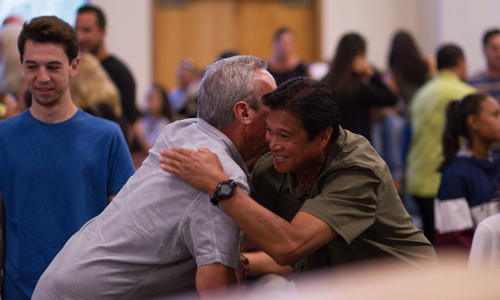Finding Happiness in Unhappy Times
15 minute read.
What does it mean to be happy?
When you hear the word “happy“, what image comes to mind? Is is more of a thought or idea? Physical sensation? How has your vision of happiness changed over the years? How has it shifted with experiences and societal influences? What have you ignored or chased in the pursuit of your own happiness?
Happiness can be a sticky topic. We aren’t exactly taught what it is, and how to attain it. We are only told that it exists, it’s our job to figure out how to find it, and that we are failures if we don’t. If we are in the healing or recovery process, happiness can also be attached to guilt. After we’re tossed into systems that denigrate and harm us, we are judged and labeled “unhappy.“
Happiness can be elusive, but it is attainable. In this post, we’ll breakdown main sources of unhappiness and why it looms. We will untangle harmful and limiting ideas about how we show up in the world, then take a holistic approach to seeking happiness and joy.
You may feel challenged by this post, and that is expected. I encourage you to be gentle with yourself while reading.
As usual, we will be challenging the status quo, and that may foster some anxiety. Stick with me, and maybe you’ll find some happiness by the end.
How be happy with yourself.
In order to be happy with yourself, you must learn to let go of the belief that you are in complete control of your happiness. As mentioned above, we are exposed daily to systems that cause us great harm. From law enforcement to healthcare to academia and the labor force, we are regularly fed the message that how we show up in the world is wrong. We are taught that if we step outside of the status quo, we are a problem that needs to be solved.
Once you are able to accept that the culture we live in can have a profoundly negative impact on your happiness and quality of life, we can begin to address what you can control.
Stress management, self-compassion and actively caring for yourself have never been more necessary. We have written about stress management for millennials before. We also understand that while overall stress and dissatisfaction occurs at a higher rate for millennials and Gen Zs, financial and housing insecurity has denied many members of older generations the peaceful later years they have been promised. We are all suffering.
Withholding judgment and practicing curiosity can make the outside world feel less hostile. Intolerant views that keep us from connecting with others, but make us feel better about ourselves in the moment, often result in low self-esteem and unhappiness. This means really, truly addressing bigoted views that you may still hold. These views may include but are not limited to racism, anti-fat bias, classism, misogyny, anti-trans and anti-LGBTQ+. These beliefs limit our ability to build sustainable self-worth and joy.
Those in positions of power have always attempted to divide us, keep us fighting amongst ourselves, so that we don’t focus on who the real problem is. Think Nazis, Donald Trump, anti-immigration legislation, anti-black moral panics, etc.
Are there any limiting views you hold now that can be reexamined and let go of?
“You can't be happy all the time.”
It is a widely held belief that we cannot be happy all the time. It reveals how reliant on the binary we are: good or bad, black or white, male or female, happy or sad. The truth is that we are incredibly complicated beings, able to tolerate and withstand stressors while enjoying loved ones and making memories.
Accessing happiness during difficult times is not impossible. Someone bringing you a cup of tea after a hard day, or someone filling your fridge with groceries after you’ve experienced a major loss are both times when we can access small slivers of relief during distress.
Think of happiness as a spectrum. You can be a generally happy person with a great quality of life, and feel down after a really crappy day. You can also be a victim of lifelong struggle and oppression, only to find joy in relationships that have stood the test of time. Happiness shows up in our lives in different degrees, all the time.
TWS offers anti-exploitative career coaching, therapist business coaching, life coaching, talk therapy and EMDR therapy (in Pennsylvania). Ready to get started?
We are in times of uncertainty. In the US, this has always been the truth for black and brown bodies, and the poor/working classes. Safety and security more priviledged identities we have been promised has had devastating effects on poor and working class communities.
As grocery and gas prices rise, we see that the amount of people with student loan debt, sentenced to a lifetime of renting without ownership, is increasing. The number of individuals who are vulnerable is growing.
Anti-black, anti-immigrant, and anti-trans sentiment has worsened. White workers are subjugated in ways they haven’t been before. There has never been a better time for us to come together, for us to build a better future together.
This will involved finding rhythm together, finding happiness. So without further ado…
How to be happy in unhappy times.
1. Communal living.
Engage with your neighbors. Make food for and with each other. Borrow sugar, watch each other’s kids, care for each other’s pets. Offer advice on vegetable gardening, mow each other’s lawns. Check in with each other, send texts and make calls.
You will likely encounter folks who share different values and beliefs that you do. This will happen, as we all come from diverse backgrounds, with varying experiences and exposure to systematic and personal traumas. Our identities shape how we experience the world.
Keep your physical and emotional safety in mind. There is no need to endanger yourself. But also be aware of how your own experiences shape how you perceive others. If there is someone you share space with that could truly pose a threat to you, invest your time and energy into those that are not.
You do not have to like your neighbors, but putting forth an effort towards loving them, and valuing their existence and experiences, will lead to greater fulfillment. Despite what individualism as a result of capitalism makes us believe, we are social beings and we are happier when we are with one another.
2. Community organizing.
From brightest.io, community organizing is “a democratic strategy used by social movements, labor unions, under-represented communities, and marginalized groups to gain rights, win collective political power, and create positive change.”
Find a group that works to make systematic change for those suffering most under our oppressive systems. It’s a great way to take back control in a world where we are given very little, and can be a wonderful source of happiness.
Some examples of popular community organizing projects include organizing rent strikes, unionizing workplaces, community education programs, marches/rallies in response to police violence which put pressure to law enforcement to make changes, community gardening, organizing demands for a greater living conditions for working class/low income communities who are been disproportionately affected by preventable disasters, etc.
You can find organizations that already exist or start your own! Internet searches and showing up to community events are great ways to the right group for you.
After the SCOTUS leak in May of last year, my partner and I went to a rally at a nearby city. We heard the same thing we always hear from liberal groups, “All you can do is vote!” Sure, but, the people who just took my rights away were not democratically elected. Like many people, I was tired of hearing that all I could do was vote.
While the group was literally chanting “Vote! Vote! Vote!” I spotted a few folks with signs that said “Workers for Women’s Rights”. We introduced ourselves. Finally, we had found our org!
Start small, think locally. There is always a need, but you may have to search for it.
3. Feel all of your emotions.
When you grow up in a culture that pushes “good vibes only“ that punishes children when they cry, it can be hard to sit with painful feelings when they come.
Do your best not to push away emotions with the label of “negative”. Feeling all of your emotions is normal and healthy. You are supposed to experience sadness and anger. You are supposed to experience fear. When these emotions show up, they are letting you know how your environment is affecting you.
Surround yourself with loved ones, partners and chosen family who allow you to sit with your grief, anger and sadness. Those who attempt to manage your emotions are not trying to help you, they are trying to help themselves. They’re letting you know that your emotions make them uncomfortable, and that they do not wish to tolerate this discomfort.
You not only deserve to feel the full spectrum of emotions, but it is absolutely necessary in the healing process.
In other words: your reward for sitting with painful emotions is that you get to feel relief soon after.
4. Be curious.
In your interactions with others, choosing curiosity over judgment can spare you unneeded pain and anxiety. This does not mean you should never be in pain, but it does suggest that when your decision making is not clouded by unnecessary distress, you can find relief more quickly.
Be curious about your body. Notice how it changes as the days progress, pay attention to aches and pains. From a young age, we are taught to police our bodies, forcing them into a shape deemed attractive and healthy by anti-fat ideals and diet culture, as well as “productivity“.
What would change if you were to listen to your body (more on this in a minute)? What type of pleasures could you chase?
Be curious about your environment. If it is safe and accessible to you, explore your neighborhood. Notice the wildlife, the growth, and how it intersects with modern development. Take in how your neighbors choose to express themselves in their spaces.
Get used to asking yourself, “Is there more here I’m not noticing?“ See what happens.
5. Listen to your body.
What is it saying? We know that stress impacts the body, and we know that we are in what feels like permanently stressful times. Is it time to accept that what was working for you before, may no longer work for you?
Without judgement, pay attention to aches and pains. If you are able to do so, take time off when you are sick. If you aren’t, practice ease throughout the day by moving just a little more slowly and more mindfully.
Find time throughout the day to stretch and step away from your screen/work station. I sit at a screen most of the day for my job so every few hours, I do an exercise to rest my eyes. I’ll do either the 20-20-20 exercise or palming.
Over the summer, I worked part-time on a woman owned and operated farm. I would need to stretch at least every 20 minutes, so I found creative ways to incorporate yoga stretches using tools like a scuttle hoe and shovel.
Some jobs make it impossible for workers to care for their bodies during shifts. If you find yourself employed at a place like this, try your best to access rest after your shift. Also, keep yourself informed about possible options to unionize.
When you make adjustments, take breaks and make changes after listening to your body, your brain receives the message that your care is of value and important. It’s pretty wild, but when we care for ourselves, it leads to increased happiness!
Setting firm boundaries with yourself, with loved ones, and if possible, in your job, are very important factors in listening to your body. It may be hard at first, but remember that you are unlearning years normalized, body punishing behaviors. This is what we are taught!
Take your time, be gentle with yourself.
6. Stay mindfully informed.
You can keep yourself informed without doom scrolling, and without being negatively impacted by capitalist propaganda. Find sources of news that you trust, and follow them.
Take breaks from the news often. There is a lot to keep yourself informed about, and you have time to decide what you feel most passionate about.
Personally, I follow Breakthrough News. It’s a great resource that is pro-worker, anti-imperialist and anti-capitalist.
Set boundaries with your loved ones regarding news and what’s going on in the world. If your cup is empty, let them know.
You will also need to set these boundaries with yourself. We are under both internal and external pressure to stay informed, and be constantly taking in information. Being mindful requires actually being with yourself, with your body and emotions in the present. The world will keep spinning whether you are reading about it or not.
A good personal reminder: caring for myself in the moment is important, because I cannot help those who need it most if I am not at my best.
7. Rest.
Because we live under capitalism, we are taught that “contributing to society” by being highly productive leads to happiness and greater moral value. But this is not the world we live in.
We do not work hard 5-7 days a week out of a desire to make our world a better place. We do it so that a small group of people, whom we will likely never meet, can have all the wealth and all the power.
We get sick, work through illness, and push our bodies and minds past what they are capable of. All because we are fed the lie that hard work pays off. We begin receiving these messages in elementary school. From perfect attendance awards to the lack of basic finance/life skills education, it is clear that we are being raised to work, not to live.
We are not taught how to rest. Notice what thoughts/feelings come up as you read that sentence.
Poet and founder of The Nap Ministry, Tricia Hersey, published Rest is Resistance in 2022. She has this to say about their origins:
“We are the originators of the ‘rest as resistance’ and ‘rest as reparations’ frameworks, and create sacred spaces where the liberatory, restorative, and disruptive power of rest can take hold. Our work is seeded within the soils of Black radical thought, somatics, Afrofuturism, womanism, and liberation theology, and is a guide for how to collectively deprogram, decolonize, and unravel ourselves from the wreckage of capitalism and white supremacy. We believe our bodies are portals. They are sites of liberation, knowledge, and invention that are waiting to be reclaimed and awakened by the beautiful interruptions of brutal systems that sleep and dreaming provide.”
How can you rest? This can mean sleeping in on days off, catching a nap during a lunch break, setting boundaries and saying no to overscheduling. It can mean declining offers to work overtime, asking for help with childcare, and most importantly, normalizing that rest is important.
In conclusion..
How has this post landed for you? Are you ready and willing to pursue happiness, and forgive yourself for setting other things aside to find it?
Practice one of these methods for at least 5 minutes a day. See if any meaningful change happens. Find support, give support. We are all we have, and we are plenty. Best of luck finding happiness!
Thank you for reading!
Email contact@teletherapywithsarah.com with questions/comments/love.
Online anxiety therapy, depression therapy, trauma therapy for professional millennials/Gen Zs + workers in Pennsylvania.
Online international therapist business coaching for clinicians who have been exploited by managers, bosses and supervisors. Helping therapists build their dream private practices. Anti-exploitative career + life coaching now available!
TWS works hard to provide content for Millennial/Gen Z workers + Therapists who desire Liberation.
Interest in services with TWS? Schedule a free 20 minute consultation here.
Like what you read? Take a minute to leave us a 5 star review!
Learn about getting reimbursement from your insurance provider for out-of-network services here.
Very Best,
—Sarah (she/her)
Find a therapist:
includsivetherapists.com
openpathcollective.org
therapyforblackgirls.com
therapyden.com
zencare.co
thrivingcampus.com
Call 211 for Help
Resources for food, mental health, immigration.
Dial 211.
https://www.211.org/
Emergency Numbers for BIPOC and LGBTQ+
Blackline (prioritizing BIPOC) 800-604-5841
Trans Lifeline 877-565-8860 (US) / 877-330-6366 (Canada)
Trevor Hotline for LGBTQ+ youth 866-488-7386
Text "START" to 678678
National Suicide Prevention Lifeline
Hours: Available 24 hours. Languages: English, Spanish. Learn more
(800) 273-8255 or Dial 988
Deaf or hard of hearing (800) 799-4889
Video relay service and voice/caption (800) 273-8255
Red de prevención de suicidio en Español (888) 628-9454
National Domestic Violence Hotline
(800) 799-SAFE (7233)
Text “START“ to 88788
https://www.thehotline.org/
Additional Resources
Rape, Abuse and Incest National Network (RAINN) (800) 656- 4673
Veterans Crisis Line (800) 273-8255
National Sexual Assault Telephone Hotline (800) 656-4673
Alcoholism & Drug Dependency Hope Line (800) 622-2255







